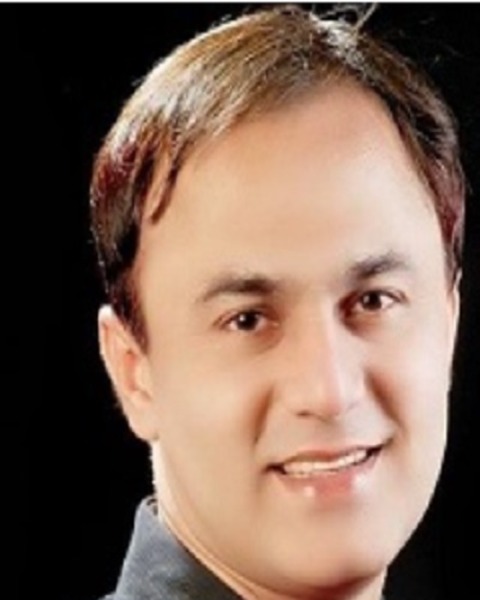Back


Poster Session B - Monday Morning
Category: Colon
B0106 - Signet Ring Cell Adenocarcinoma of Ileocecal Valve
Monday, October 24, 2022
10:00 AM – 12:00 PM ET
Location: Crown Ballroom

Has Audio

Sunil Kumar, MD
Parkview Medical Center
Pueblo, Colorado
Presenting Author(s)
Sunil Kumar, MD, Michael Harris, DO, Meghan Timmerman, DO, Charles Ruzkowski, MD
Parkview Medical Center, Pueblo, CO
Introduction: The ileocecal valve is a sphincter muscle situated at the junction of the ileum and cecum. Signet ring cell carcinoma is a rare, highly malignant adenocarcinoma of the stomach. Ileocecal valve involvement is uncommon. Long-standing chronic diarrhea, often in association with Crohn’s disease, is a known risk factor for signet ring cell adenocarcinoma.
Case Description/Methods: A 61-year-old male patient with past medical history of anxiety, depression, hyperlipidemia, and chronic diarrhea presented with progressively worsening abdominal pain for three months. The pain was intermittent, achy in character, and radiated to the lower abdomen. The patient denied any specific exacerbating or relieving factors. The patient endorsed 1-2 loose stools per day for many years. Prior workup for chronic diarrhea included multiple previous colonoscopies which were reported by the patient to be unremarkable. He denied NSAID use or family history of Inflammatory bowel disease. Physical examination revealed bilateral lower quadrant tenderness to palpation. Laboratory data showed Hb 12.7, HCT 37.2, Platelets 200, INR 1.0, B12 272, TSH 1.8, stool Calprotectin 117, stool electrolytes normal, Endomysial IgA, Tissue Transglutaminase IgG and IgA normal, hepatitis C and rapid plasma reagin were also negative. Enhanced computerized tomography of abdomen and pelvis showed thickening of the terminal ileum. A colonoscopy was then performed showing circumferential edema and a partially obstructive mass at the ileocecal valve. Biopsies of the mass demonstrated signet ring cells infiltrating lamina propria consistent with adenocarcinoma of the valve. Subsequently, the patient underwent a laparoscopic right hemicolectomy. The resected colonic tissue contained an 8 cm ileal mass with histology showing a poorly differentiated metastatic signet ring cell adenocarcinoma with an invasion of visceral peritoneum and peri-colonic lymph node involvement.
Discussion: Signet ring cell adenocarcinoma of the ileocecal valve is an exceedingly rare presentation. Patients are often asymptomatic but may present with non-specific constitutional symptoms. Abdominal pain is typically associated with late or advanced disease. Patients with Crohn's disease greater than 10 years are at an increased risk of developing signet ring cell adenocarcinoma. Chronic diarrhea in the absence of Crohn's disease also represents a risk factor for the development of signet ring cell adenocarcinoma, as was seen in this patient.

Disclosures:
Sunil Kumar, MD, Michael Harris, DO, Meghan Timmerman, DO, Charles Ruzkowski, MD. B0106 - Signet Ring Cell Adenocarcinoma of Ileocecal Valve, ACG 2022 Annual Scientific Meeting Abstracts. Charlotte, NC: American College of Gastroenterology.
Parkview Medical Center, Pueblo, CO
Introduction: The ileocecal valve is a sphincter muscle situated at the junction of the ileum and cecum. Signet ring cell carcinoma is a rare, highly malignant adenocarcinoma of the stomach. Ileocecal valve involvement is uncommon. Long-standing chronic diarrhea, often in association with Crohn’s disease, is a known risk factor for signet ring cell adenocarcinoma.
Case Description/Methods: A 61-year-old male patient with past medical history of anxiety, depression, hyperlipidemia, and chronic diarrhea presented with progressively worsening abdominal pain for three months. The pain was intermittent, achy in character, and radiated to the lower abdomen. The patient denied any specific exacerbating or relieving factors. The patient endorsed 1-2 loose stools per day for many years. Prior workup for chronic diarrhea included multiple previous colonoscopies which were reported by the patient to be unremarkable. He denied NSAID use or family history of Inflammatory bowel disease. Physical examination revealed bilateral lower quadrant tenderness to palpation. Laboratory data showed Hb 12.7, HCT 37.2, Platelets 200, INR 1.0, B12 272, TSH 1.8, stool Calprotectin 117, stool electrolytes normal, Endomysial IgA, Tissue Transglutaminase IgG and IgA normal, hepatitis C and rapid plasma reagin were also negative. Enhanced computerized tomography of abdomen and pelvis showed thickening of the terminal ileum. A colonoscopy was then performed showing circumferential edema and a partially obstructive mass at the ileocecal valve. Biopsies of the mass demonstrated signet ring cells infiltrating lamina propria consistent with adenocarcinoma of the valve. Subsequently, the patient underwent a laparoscopic right hemicolectomy. The resected colonic tissue contained an 8 cm ileal mass with histology showing a poorly differentiated metastatic signet ring cell adenocarcinoma with an invasion of visceral peritoneum and peri-colonic lymph node involvement.
Discussion: Signet ring cell adenocarcinoma of the ileocecal valve is an exceedingly rare presentation. Patients are often asymptomatic but may present with non-specific constitutional symptoms. Abdominal pain is typically associated with late or advanced disease. Patients with Crohn's disease greater than 10 years are at an increased risk of developing signet ring cell adenocarcinoma. Chronic diarrhea in the absence of Crohn's disease also represents a risk factor for the development of signet ring cell adenocarcinoma, as was seen in this patient.

Figure: SIGNET RING CELL CARCINOMA
Disclosures:
Sunil Kumar indicated no relevant financial relationships.
Michael Harris indicated no relevant financial relationships.
Meghan Timmerman indicated no relevant financial relationships.
Charles Ruzkowski indicated no relevant financial relationships.
Sunil Kumar, MD, Michael Harris, DO, Meghan Timmerman, DO, Charles Ruzkowski, MD. B0106 - Signet Ring Cell Adenocarcinoma of Ileocecal Valve, ACG 2022 Annual Scientific Meeting Abstracts. Charlotte, NC: American College of Gastroenterology.
